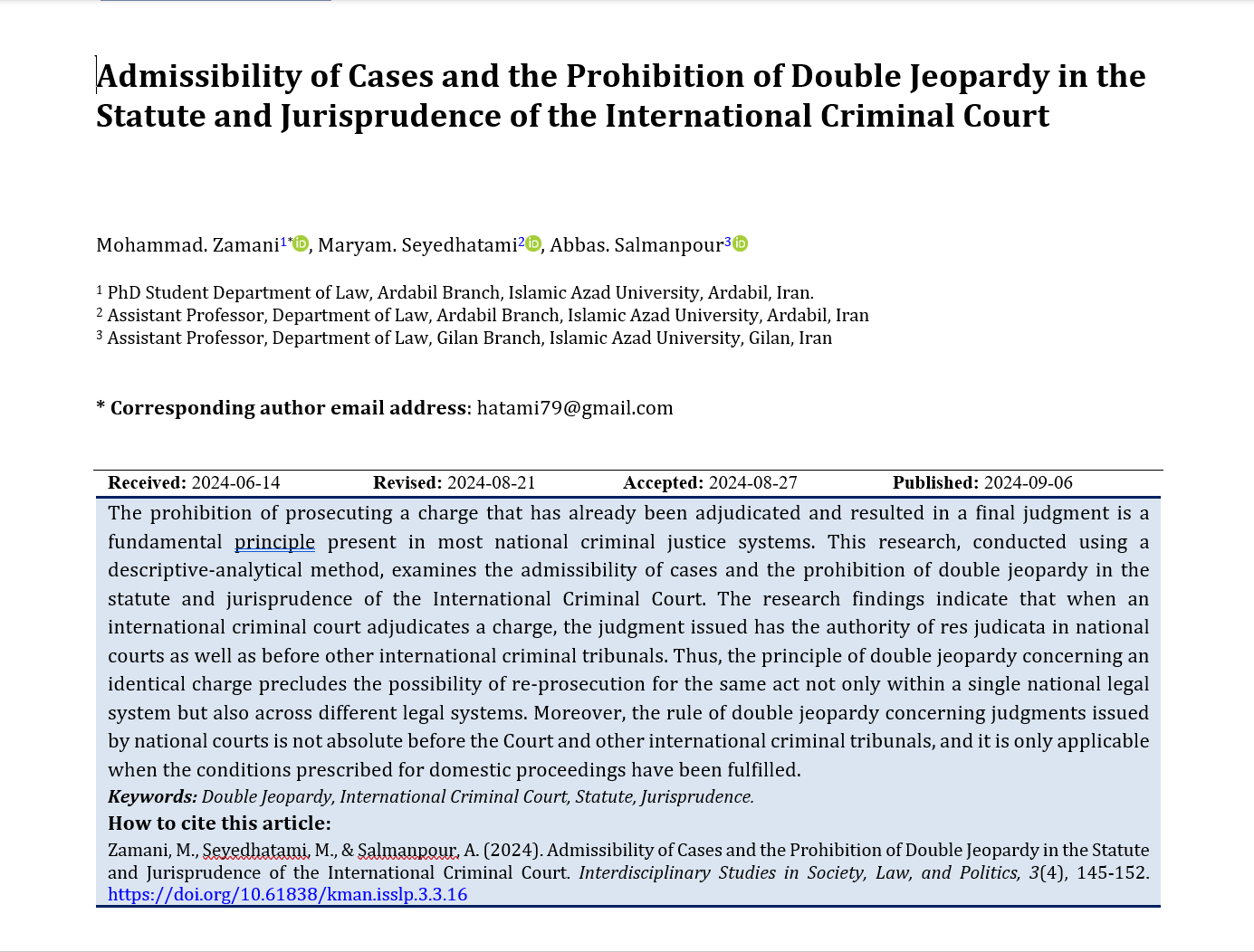Admissibility of Cases and the Prohibition of Double Jeopardy in the Statute and Jurisprudence of the International Criminal Court
Keywords:
Prohibition of retrial, International Criminal Court, Statute, judicial procedureAbstract
The prohibition of prosecuting a charge that has already been adjudicated and resulted in a final judgment is a fundamental principle present in most national criminal justice systems. This research, conducted using a descriptive-analytical method, examines the admissibility of cases and the prohibition of double jeopardy in the statute and jurisprudence of the International Criminal Court. The research findings indicate that when an international criminal court adjudicates a charge, the judgment issued has the authority of res judicata in national courts as well as before other international criminal tribunals. Thus, the principle of double jeopardy concerning an identical charge precludes the possibility of re-prosecution for the same act not only within a single national legal system but also across different legal systems. Moreover, the rule of double jeopardy concerning judgments issued by national courts is not absolute before the Court and other international criminal tribunals, and it is only applicable when the conditions prescribed for domestic proceedings have been fulfilled.
Downloads






